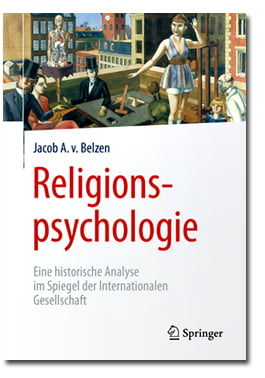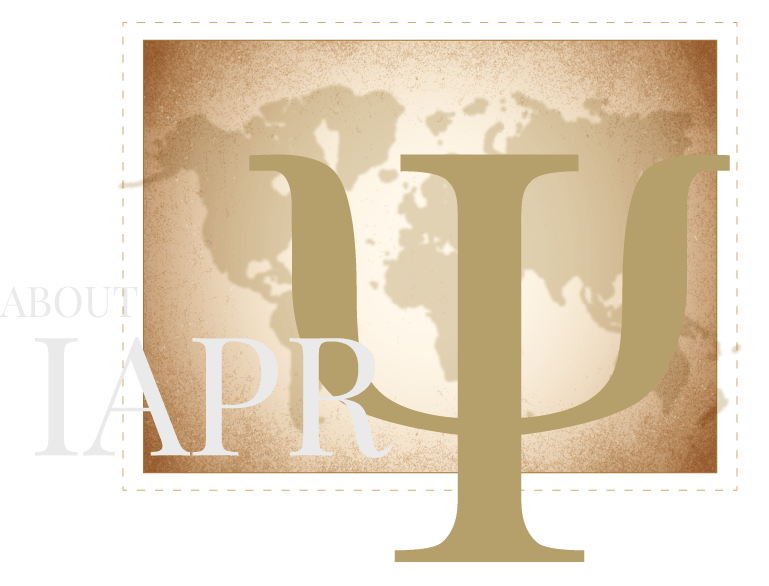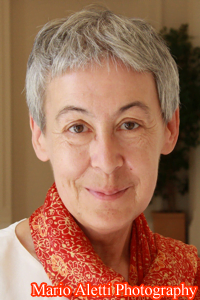ABOUT US
An InternatIonal OrganIzatIon
The International Association for the Psychology of Religion (IAPR) is an international organization promoting scientific research and exchange within the field of the psychology of religion. The Association is not partial to any particular trend but aspires to provide a platform for the entire spectrum of the scientific-psychological study of religion for psychologists of religion from all over the world.

Our HIstory
An InItIatIve from the BegInnIng of the 20th Century
The International Association for the Psychology of Religion (IAPR) has European roots. In the beginning of the 20th century, in the German-speaking European countries, interest in the psychology of religion had risen considerably, due to the work of such founding fathers as Wilhelm Wundt (1932-1920), Sigmund Freud (1856-1939) and others. In 1914 Wilhelm Stählin (1883‐1975), who had been a graduate student of Oswald Külpe (1862-1915), founder of the Würzburg School of Psychology, published the first volume of the “Archiv für Religionspsychologie”. (The name “Archiv” served to emphasize its character as research outlet and to distinguish it from earlier journals also using the phrase “psychology of religion”.) As this first Archiv was well received, the publisher suggested to also found a supporting association for the psychology of religion and to publish a second volume of the Archiv already that very same year. The successful initiative died away soon, however: although within just a few weeks since the founding, a considerable number of prominent German scholars had applied for membership, almost all activities were discontinued as Germany went to war during 1914-1918. Only with great trouble Stählin managed to publish a second issue (vol. 2/3) in 1921.
A number of years later, an effort was made to reactivate the association, but with only limited success, again due to politics and war: in 1929 vol. 4 was published, but the new editor (Werner Gruehn [1887-1961], a pastor from Estonia) got involved with National-Socialism, lost his interest in psychology and for a long time even after World War II nothing was heard of the Association any more.
At the beginning of the 1960s, the Association was reconstituted, unfortunately in a way oriented to the past rather than to future. Some “Tagungen”, small conferences, were organized, to which only a limited number of people were invited. The papers read at the conferences were printed in the irregularly published Archiv, which now functioned in this way more as proceedings than as a journal.
Although internationally acknowledged psychologists of religion like André Godin (1905-1997), Antoine Vergote (1921-2013) and especially Hjalmar Sundén (1908-1993) published some articles in the Archiv,
the Association after some years ended in a cul‐de‐sac again. There were only few professional psychologists involved, most attendees of the “Tagungen” had limited training in psychology during their pre‐war education as theologians and without network in contemporary psychology. No efforts were made to broaden up, to professionalize or to adapt the Association’s perspective or style, which had become increasingly associated with ultramontane Catholicism.
A small number of younger colleagues decided at a “Tagung” in Uppsala (Sweden), 1976, to start a more progressive and active counter-platform: the European Psychologists of Religion. This informal group that since its first meeting in Nijmegen (the Netherlands) in 1979 met triennially, soon become the dominant organization in Europe, entertaining relationships with a number of other organizations in a field that internationally, esp. in the USA, had begun to expand again.
In 1995 Nils Holm (*1943), a Finnish historian of religion with strong interest in psychology of religion, became president of the Association, which by then was almost without membership. He modernized the Archiv by introducing the so-called blind peer review procedure, widely adopted within psychology already. At a “Tagung” in Aarhus (Denmark), 1998, he persuaded the Association’s board to take in some new, additional persons. Together with the small number of psychologists of religion already on the Board, these new members were committed to turn the Association into a scholarly, democratic, and confessionally as well as religiously neutral international platform for the psychology of religion. At a conference in Soesterberg (the Netherlands), 2001, the Association was formerly reorganized (in fact: re-founded) by integrating the majority of the European Group for the Psychology of Religion (the name of this informal platform had changed constantly) as new members. (At a co-sponsored conference of the Association and the European Group in Glasgow [UK], 2003, the European Group decided to abolish itself, leaving the field organization-wise to the older, now reconstituted International Association for the Psychology of Religion (IAPR).) New Bylaws ensure that the same persons cannot remain endlessly on the board, that nominations for its positions can be made by all members and that elections are regularly held. The Archiv was transformed into a yearbook, is no longer related to a theological publishing company and is since 2009 a regular peer-reviewed, impact factor assessed journal in English (Archive for the Psychology of Religion), with three issues per year. IAPR’s truly international character manifests itself in a membership on all continents.

IAPR is the oldest formally existing organization in the psychology of religion worldwide and one of the very few in the international fields of psychology, theology and sciences of religion to have its past extensively contextually investigated. Published on the completion of IAPR’s first century (2015), a monograph on IAPR’s history (Religionspsychologie) was itself critically discussed in a special supplement to the Archive in 2016.
THE BOARD
PresIdent
Dr. Marta Helena de Freitas
Professor and coordinator of “Religion, Mental Health and Culture” Lab at the Graduation Program in Psychology at Catholic University of Brasília, Brazil.
Honorary Research Fellow at University of Wales Trinity Saint David, UK.
General Secretary and Treasurer
Dr. Sarah Demmrich
Associate Professor at University of Münster, Germany & University of Berne, Switzerland.
MEMBER
Dr. Üzeyir Ok
Professor, Ibn Haldun Üniversitesi, Insan ve Toplum Bilimleri Fakultesi, Psikoloji Bölümü
MEMBER
Dr. Halina Grzymala-Moszczynska
Professor of Jesuit University in Cracow, Poland
MEMBER
Dr. Victor Counted
Associate Professor of Psychology
Director of Research and Sponsored Programs
Regent University, VA
MEMBER
Zhuo Job Chen
Associate Professor,
School of Nursing University of North Carolina Charlotte
MEMBER
Andreas Önver Cetrez
Professor in Psychology of religion, Uppsala University
Co-coordinator of GAPs a Horizon Europe project
MEMBER
Prof. Kevin Ladd
Editor in chief for the Archive for the Psychology of Religion
Department of Psychology Indiana University South Bend









